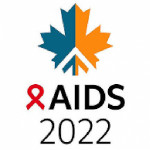A lack of health care workers in southern Africa is having a profound negative impact on efforts to increase access to treatment and care for people living with HIV, experts associated with Médecins Sans Frontières (MSF; Doctors Without Borders) reported in a satellite meeting on the first day of the XVII International AIDS Conference in Mexico City.
“In Thyolo district, Malawi, one nurse keeps 400 patients alive by following up their essential treatment, but her basic salary amounts to just U.S. $3 a day,” said Moses Massaquoi, MD, MSF medical coordinator in Malawi. He noted that funding sources for medications must find ways to cover the costs associated with administering antiretroviral (ARV) therapy, notably training, salaries and support for health care workers in hospitals and clinics.
A recurrent theme among presenters was that, as the number of people accessing ARV treatment in resource-poor nations continues to increase, there will also be an increased burden on health care staff, potentially resulting in low-quality care and poor treatment adherence.
To help overcome professional staffing shortages, MSF and other groups are experimenting with “task shifting”—providing training and support to nurses and counselors to provide pertinent care to people living with HIV, notably in rural areas.
While task shifting has proven effective—it has permitted greater access to ARV therapy in sub-Saharan countries such as Malawi, Lesotho, South Africa and Rawanda and is a focus of several presentations at the conference in Mexico City—MSF argues that it does not rectify the fundamental problems facing health care networks in areas of the world hardest hit by HIV/AIDS.
As potential solutions, MSF proposed that national and international financial institutions lift limits on salary and workforce spending; it also suggested recruiting extra health staff and increasing salaries.
Advertisement
Advertisement
Advertisement






3 Comments
3 Comments